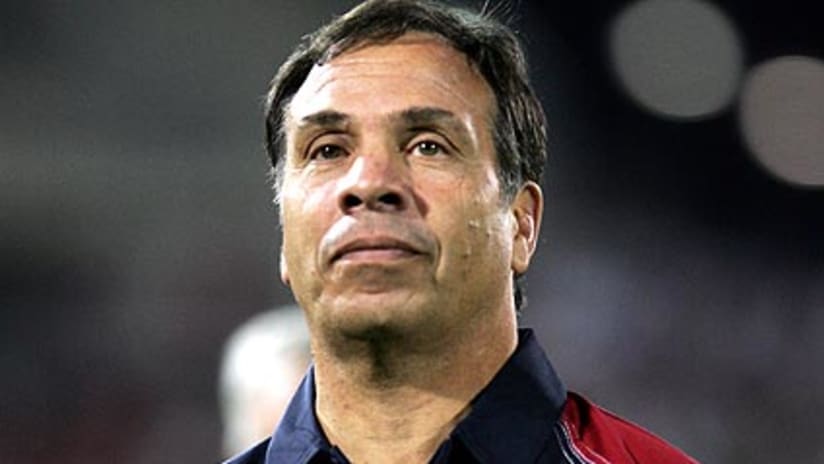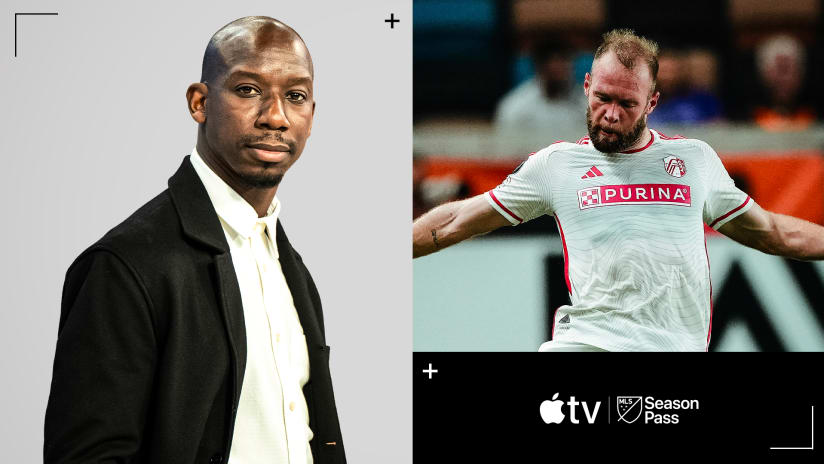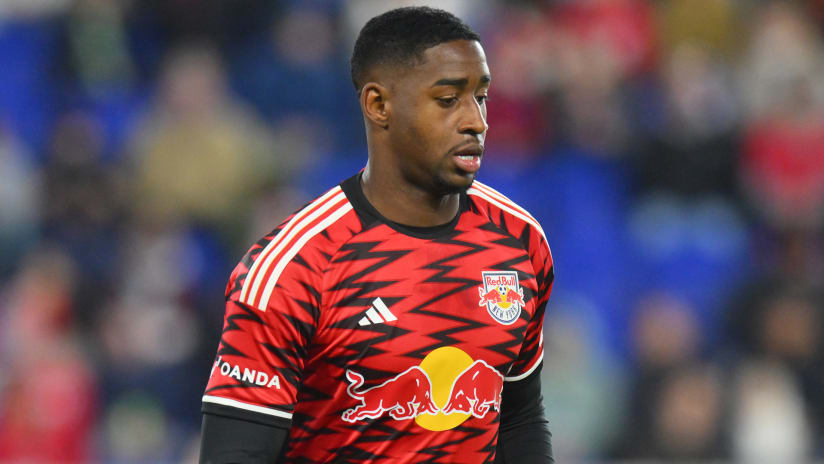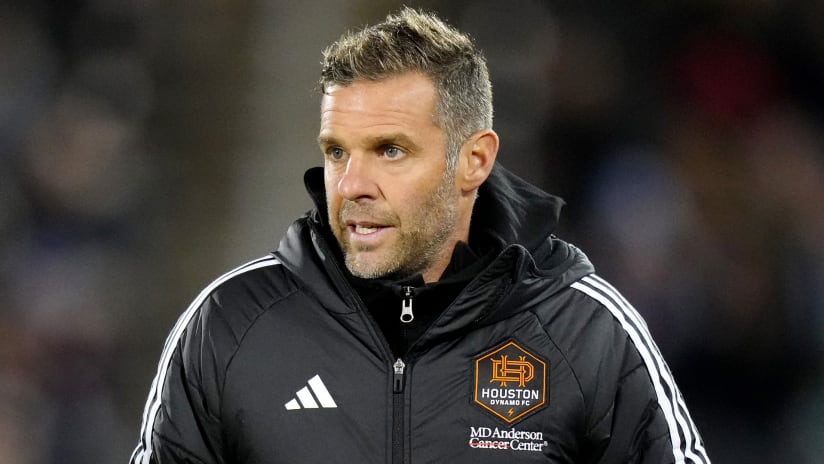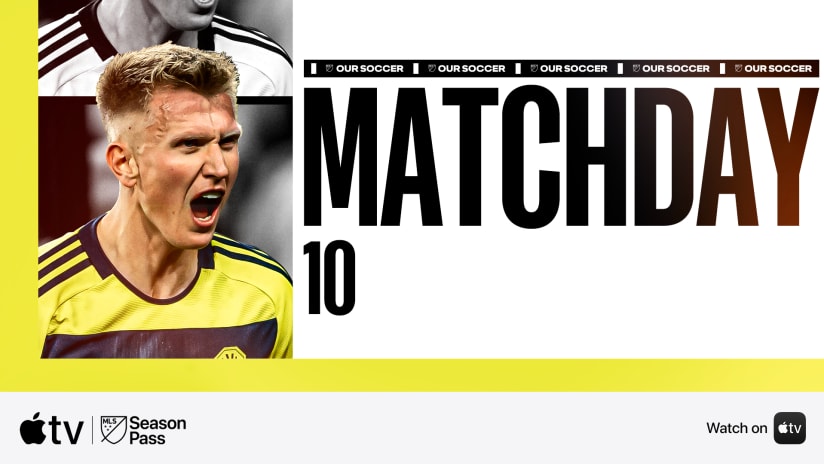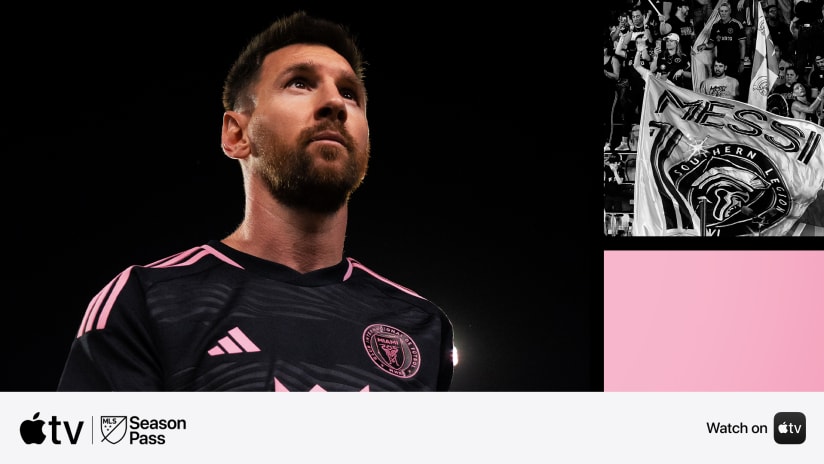Throughout the history of sports, there have been coaches whose legacy has taken on mythic proportions. A mere mention of their name lights up the eyes of the longtime fan, who will then recite a litany of memories¨- a tactical shift to beat a tough opponent one game, an unheralded draft pick who became a star, a handful of classic quotes - upon which the legend was built.
While it might be too early to include Bruce Arena's name in with the likes of Casey Stengel, Vince Lombardi, and John Wooden as America's preeminent coaches, no other American soccer coach has had a comparable record of excellence at the college, professional and national team levels.
Arena came to United after 18 years at the University of Virginia, where he had compiled a record of 295-58-32, winning five NCAA championships and developing a handful of players for the burgeoning U.S. men's national team, including John Harkes, Jeff Agoos and Claudio Reyna.
Harkes and Agoos were allocated to United even before Arena had been hired on January 3, 1996. A month later, Bolivian playmaker Marco Etcheverry came aboard. At the inaugural MLS Draft, Arena, with general manager Kevin Payne, chose Salvadoran forward Raul Diaz Arce with his first pick, and rounded out the draft with six former Cavaliers. One of those who didn't come from Virginia was Eddie Pope, a standout defender on the U-23 team, which Arena also coached at the time.
But the new team got off to poor start, losing six of its first seven games. After the second week, Arena cut five players and, over the next month, found new blood in Mark Simpson, Steve Rammel, Tony Sanneh, and David Vaudreuil from the indoor and USISL levels. Another Virginia alum, John Maessner, was signed from FC Saarbruecken in Germany.
The team began to play better almost immediately, beginning with Rammel scoring the first hat trick in MLS history against Columbus on May 15. In early August, forward Jaime Moreno joined United, and they stormed through the rest of the regular season to finish with the third-best record in the league.
In the playoffs, United disposed of the MetroStars and the Mutiny to face the Los Angeles Galaxy in the MLS Cup. After 56 minutes, United were down 2-0. On the hour mark, Arena substituted Tony Sanneh for Maessner, and 10 minutes later, Shawn Medved came in for Mario Gori. By the 81st minute, the game was tied on goals by both Sanneh and Medved. Four minutes into overtime, Eddie Pope headed an Etcheverry corner kick into the net to give United the first championship in league history. The game was a microcosm of United's season. Ten days later, United beat the Rochester Raging Rhinos 3-0 in the U.S. Open Cup Final to win the "double."
With World Cup qualifying taking place throughout the 1997 season, Arena was left without several of its key players for many games. In addition, severe injuries to Gori and Simpson forced Arena to play a different lineup every game. But Arena dealt with the challenges, as Maessner, Vaudreuil and Nigerian Ben Iroha filled in well, and United finished with the best record in the league, winning the East by 10 points.
United went undefeated in the playoffs, capping the MLS season with by winning its second MLS Cup, beating the Colorado Rapids 2-1 in front of 57,431 people at RFK Stadium. United also got their first taste of international competition in 1997, reaching the semifinals of the CONCACAF Champions Cup.
Under Arena, United played a possession game, built upon passing the ball around patiently and confidently until space opened up, then striking quickly. With the superb passing skills of Harkes, Agoos and, above all, Etcheverry executing Arena's game plan, United played attractive, exciting soccer at a time when many other teams were still trying to figure out how to best use their talent.
This style came to fruition in 1998. Once again, United dominated the League, going 24-8 and scoring a team-record 74 goals. One of Arena's last recruits at Virginia, Ben Olsen, joined the team as a rookie and made an immediate impact on the field. Off of the field, Olsen settled into life as a professional while living in Arena's house. From July 2 to August 26, United won nine straight League games and, in the CONCACAF Champions Cup, beat Trinidad's Joe Public, and two Mexican clubs, León and Toluca, to become the first team from the United States to capture the trophy, outscoring their opponents 11-0.
Although United lost its bid for a third consecutive MLS Cup, losing 2-0 to a Chicago Fire team captained by current United coach Peter Nowak, United added one more trophy to its cabinet after the season ended. Their victory in CONCACAF gave them a berth in the InterAmerican Cup against Brazil's Vasco da Gama, who had recently won the prestigious Copa Libertadores.
United played well in the first game against the South American champions, but lost 1-0. In the second game, a 33rd minute goal by Tony Sanneh tied the series on aggregate. Then, in the 77th minute, Eddie Pope scored the game-winning goal to give United a victory that had been unimaginable to everyone except Arena and his men. The 1998 team was recently voted the best team in MLS history on a poll on MLSnet.com
The victory over Vasco da Gama was Arena's final game as United's coach. Following the collapsing of the U.S. national team at the World Cup, coach Steve Sampson was fired, and Arena took over shortly after MLS Cup 1998. The decision was not without controversy, as Arena's caustic wit and stubbornness has frequently aggravated officials in the U.S. Soccer Federation. But, with all his accomplishments, it was obvious that there was nobody else capable of rebuilding the program, this time around players from MLS.
As national team coach, Arena has led the U.S. to unprecedented heights, reaching the quarterfinals of the 2002 World Cup, and are currently ranked 7th in the world as they look towards next summer's World Cup.

